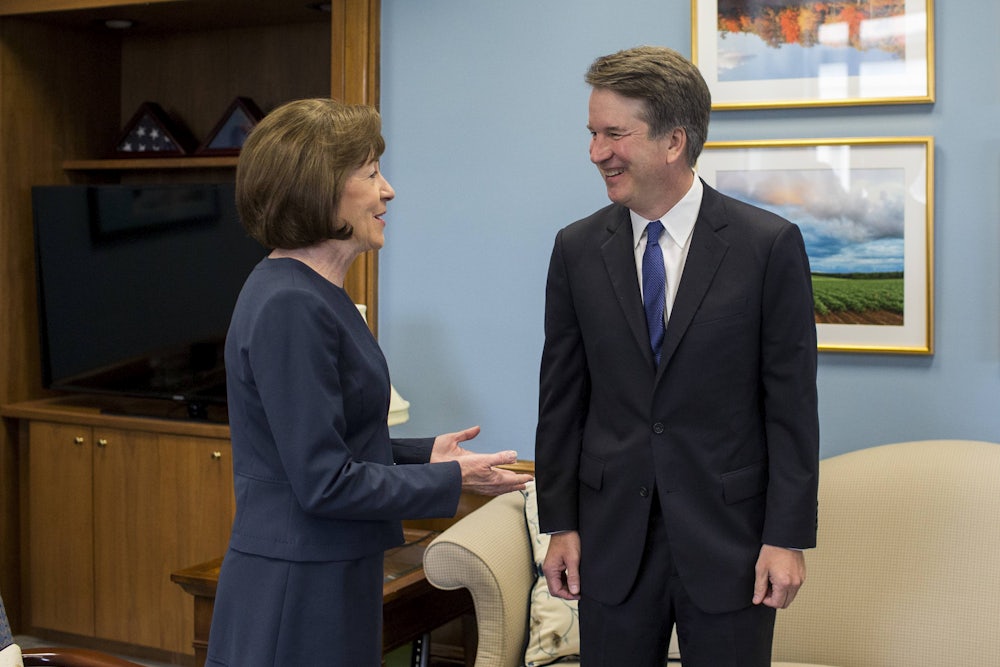A coalition of Maine-based activists and groups is raising money online to donate to Republican Senator Susan Collins’s future opponent if she votes to confirm Brett Kavanaugh to the Supreme Court. Donors have pledged more than $1 million as of Tuesday. (If Collins votes against Kavanaugh, the money is returned to its contributors.)
Collins, considered a key vote on Kavanaugh’s confirmation, isn’t thrilled by the pressure campaign. “I consider this quid pro quo fundraising to be the equivalent of an attempt to bribe me to vote against Judge Kavanaugh,” she told Newsmax on Monday. The Wall Street Journal’s editorial board agreed.
“We’re all for citizens exercising their free-speech rights, including campaign donations, for or against political candidates,” the newspaper wrote in today’s edition. “But federal law defines the crime of bribery as ‘corruptly’ offering ‘anything of value’ to a public official, including a Member of Congress, with the intent to ‘influence any official act.’ The crowdfunders in this case are offering something of value—withholding funds from her opponent—in return for a Supreme Court confirmation vote.”
But this is exactly how the nation’s swampy campaign-finance system works. Look no further than how Republican donors handled last year’s tax bill: by withholding contributions before Congress took up the measure, then opening their checkbooks almost immediately after it became law. Politico reported:
Within days of the tax bill passing the Senate, several other GOP donors started cutting checks too. Marlene Ricketts (whose family owns the Chicago Cubs), Metro Bank founder Vernon Hill and coal magnate Joseph Craft each gave $50,000 to $100,000 to House Republicans’ committees after not making large donations to federal candidates for the first 11 months of the year.
The dynamic was obvious even before some lawmakers openly admitted it. “My donors are basically saying, ‘Get it done or don’t ever call me again,’” New York Representative Chris Collins told reporters last year. (Federal prosecutors charged Collins with insider trading last month.) Whatever the Maine organizers’ actual legal liability in this case, their real crime seems to be taking the current system to its logical conclusion.
